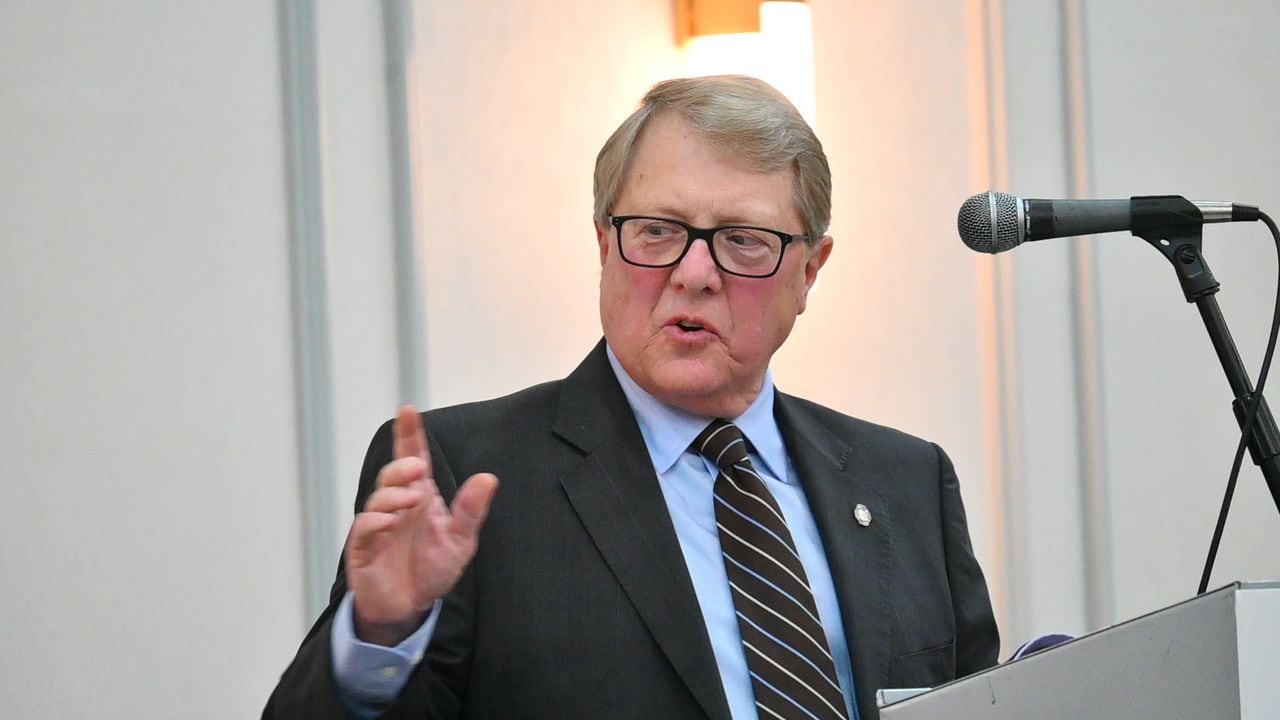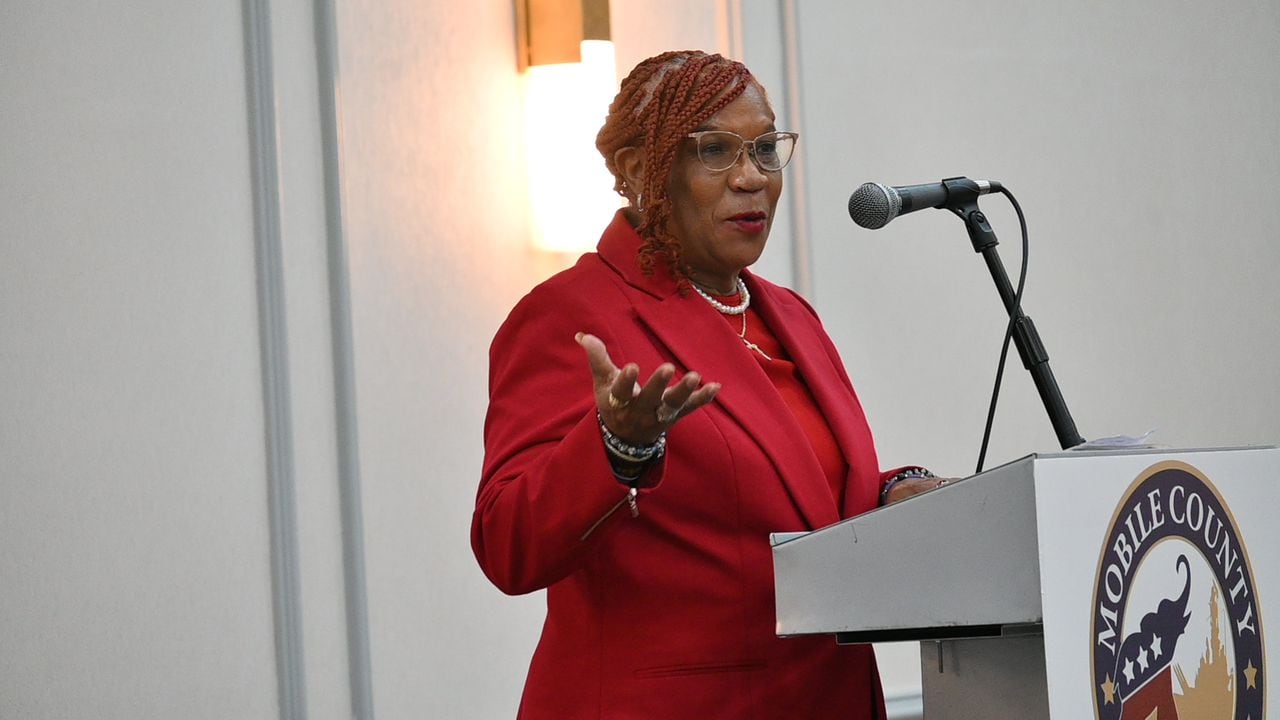How Alabama’s 2nd congressional district plays role in determining U.S. House
Alabama Democrats are hoping the 2nd district congressional seat plays a role in flipping the U.S. House where Republicans currently hold a slim four-seat majority.
The newly drawn district consisting of all or parts of 13 counties stretching from Mobile to Montgomery is considered a “likely Democratic” seat, according to the recent Cook Political Report’s analysis of U.S. House seats viewed as competitive. And among those competitive races, the 2nd district is viewed as the only one that is likely to flip from Republican to Democratic after the general election.
The path toward flipping the district and providing a key assist to the National Democratic Party in November, begins for the party on Tuesday during the primary election.
The Republicans remain hopeful they can hold onto the district and plan to compete for it in November, but analysts say an uphill battle awaits.
“In a House as closely divided as we have, every single election makes a big difference,” said David Wasserman, a senior editor & elections analyst with the Cook Political Report.
The Super Tuesday primary in Alabama will represent a whittling down of the 18 candidates vying for their party’s nomination in the 2nd district contest. Of those, 11 are Democrats and seven are Republicans.
Most analysts anticipate both parties hosting runoff contests featuring the top two finishers in each primary election. Those contests will take place in 42 days, on April 18.
From there, a rarity in Alabama is set to take place featuring a competitive general election race for Congress.
Or is it?
Wasserman said that Alabama’s 2nd district is poised to elect a Democratic congressman, and likely making a bit of history by having two Black members of Congress serving the state at the same time.
Some key factors Wasserman notes: The 2nd district would’ve carried President Joe Biden over former President Donald Trump by 12 points during the 2020 presidential election, and its voting-age population is 47.6% Black-45% white.
In a state where racial polarizing voting historically underscores partisan politics, the demographic realities shift the district’s advantages to the Democratic Party, Wasserman notes. The state’s electorate is also considered one of the most “inelastic” in the U.S., which means voter behavior is overall predicable and not subject to sudden shifts in national political moods.
“Given how racially polarized the electorate is, it would take a severe downturn for Democrats (to lose) and for the seat to fall into Republican hands,” he said. “Even though this new district includes a lot of rural areas, the bulk of the votes come from the metropolitan areas where Democrats hold their own especially in Montgomery and Mobile. You have a professional class of voters who are, perhaps, not Trump’s brand of Republicans.”
The predicted flip comes as analysts at Cook and elsewhere are examining 21 toss-up congressional districts where either a Republican or a Democratic politician could win. Of those, seven are located in New York and California. Michigan, Arizona, and Pennsylvania have two toss-up races each.
Alabama represents one of three congressional districts likely to flip Democratic following redistricting. The other two include Louisiana’s 6th district, which is now majority Black; and a congressional district in New York.
Wasserman said those Democratic flips will be offset by Republican gains in North Carolina. The GOP is expected to gain either three or four of the state’s 14 congressional districts. The current North Carolina delegation is split between seven Republicans and seven Democrats.
Nothing for granted
The Alabama Democratic Party realizes they have an opportunity after the U.S. Supreme Court unexpectedly ruled last June in Allen v. Milligan that Alabama’s Republican-drawn congressional map violated the Voting Rights Act of 1965.
The nation’s highest court, in a 5-4 decision, upheld a three-judge lower court panel’s determination that Alabama should have at least have another congressional district in which Black voters were either a majority or close to it. Alabama has seven congressional districts, and a 27% Black population.
The Alabama Legislature, which consists of a GOP supermajority, declined to create a second majority Black district last summer. The decision was kicked back to the three-judge panel, which selected Alabama’s new congressional map in October that upended the state’s political landscape this year: Instead of six safe Republican districts and one safe Democratic district, Alabama’s map now has two districts where Democrats have a shot to win.
Sheena Gamble, spokesperson with the Alabama Democratic Party, said the party isn’t taking anything for granted. And the party is aware of low voter registration and engagement are factors that could give Republicans a shot to pull off a win.
“While this seat is one in which Black voters have a better chance of picking a candidate of their choice, it is not a majority Black district but one where it is ‘something close to it,’ as the federal three-judge panel outlined at a 48% Black population,” Gamble said in a statement to AL.com on Monday. “There are around 155,924 unregistered voters that need to be engaged in order to make this seat a Democratic one.”
Alabama, since 1992, has only had one majority Black congressional district since Reconstruction. Only three Black members of Congress have been elected from the state, all from Alabama’s 7th congressional district – Earl Hilliard, Artur Davis, and Terri Sewell. The 7th district remains majority Black at 51.9%.
Gamble said that once the primary elections are concluded, “we intend to work hard and fire up the people of District 2 to turn out and vote for the Democratic candidate. Once we have a confirmed candidate for District 2, we have no doubt that the voters will unite behind that candidate. We will then do our part to ensure the Democrats emerge the victor in this contest.
Democratic voters will have plenty of choices on the ballot today. The candidates include James Averhart of Mobile, Rep. Napoleon Bracy Jr. of Saraland, Rep. Anthony Daniels of Huntsville, former Justice Department official Shomari Figures of Mobile, Rep. Jeremy Gray of Opelika, retired public school teacher Phyllis Harvey-Hall of Montgomery, government retiree and businessman Willie Lenard of Pike Road, retired businessman Larry Darnell Simpson of Mobile, Rep. Juandalynn Givan of Birmingham, Sen. Merika Coleman of Pleasant Grove, and Troy businessman Vimal Patel.
Fully engaged
The Republican field is also stacked. The candidates include Sen. Greg Albritton of Atmore, former Sen. Dick Brewbaker of Montgomery, attorney Caroleene Dobson of Montgomery, business owner Karla DuPriest of Mobile, Montgomery attorney and businessman Hampton Harris, Newton City Councilwoman Belinda Thomas, and community college instructor Stacey Thomas Shepperson of Mobile.
John Wahl, the Alabama Republican Party Chairman, finds his party in the rare underdog role heading into a General Election contest against a Democrat.
He calls the new district a “complex situation,” and blames the federal courts for “purposely” creating a Democratic district in Alabama. He also believes the map should be drawn based on “communities of interest” – which would have kept Mobile and Baldwin counties together in the 1st district, instead of the current splintering of the two.
“This district is not a majority minority district, but a majority Democrat district,” Wahl said. “However, the Alabama Republican Party is fully engaged in fighting to win District 2.”
Republicans have represented the 2nd district since 2011. Martha Roby (2011-2021), and Barry Moore (2021-present) have held onto the seat since Democratic U.S. Rep. Bobby Bright of Montgomery held onto it from 2008-2011.

Republican U.S. Rep. Marjorie Taylor Greene of Georgia campaigns for U.S. Rep. Barry Moore on Saturday, March 2, 2024, during a campaign stop at Steele Creek Lodge in Satsuma, Ala.John Sharp/[email protected]
Moore, R-Enterprise, faces U.S. Rep. Jerry Carl of Mobile in a rare incumbent versus incumbent Republican battle in the highly conservative 1st congressional district race during today’s primary.
In the 2nd district, Wahl disputes assumption that “all Black voters are Democrats.”
“That is simply not true, and we believe the conservative minorities deserve a voice,” Wahl said. “As we continue to see Republican gains in the minority communities, the GOP will win District 2, whether that’s in 2024 or in the near future. The Alabama Republican Party shares many views with Black voters, including a commitment to faith, religious liberty, securing the border, keeping our communities safe, and pushing back against the radical sexualization of our children. We will be talking with all voters about these issues until November, and why it is the values of the Republican Party that will bring down inflation, provide economic opportunities, and help their families have a brighter future.”

